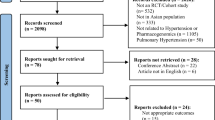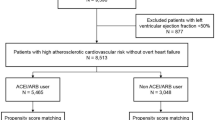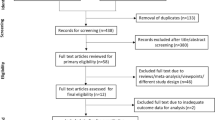Abstract
This study investigates whether the interaction between angiotensin-converting enzyme (ACE) inhibitors or β-blockers and the ACE insertion/deletion (I/D) polymorphism or angiotensin receptor II type 1 (AGTR1) 573C/T polymorphism modifies the risk of myocardial infarction (MI) or stroke. In total, 4097 subjects with hypertension were included in this study. The drug–gene interaction on the risk of MI or stroke was determined with a Cox proportional hazard model. The risk of MI was reduced in current users of ACE inhibitors with the AGTR1 573CT or CC genotype compared to ACE inhibitors with the AGTR1 573TT genotype (synergy index (SI):0.32; 95% confidence interval (CI): 0.14–0.70). No significant drug–gene interaction was found on the risk of stroke (SI:0.82; 95% CI: 0.44–1.52) or in β-blocker users. Also, no significant drug–gene interaction was found with the ACE I/D polymorphism. In conclusion, subjects with at least one copy of the AGTR1 573C allele might have more benefit from ACE inhibitor therapy.
This is a preview of subscription content, access via your institution
Access options
Subscribe to this journal
Receive 6 print issues and online access
$259.00 per year
only $43.17 per issue
Buy this article
- Purchase on Springer Link
- Instant access to full article PDF
Prices may be subject to local taxes which are calculated during checkout
Similar content being viewed by others
Abbreviations
- ACE:
-
angiotensin-converting enzyme
- AGTR1:
-
angiotensin receptor type 1
- MI:
-
myocardial infarction
- RAS:
-
renin–angiotensin–system
References
Brown MJ, Haydock S . Pathoaetiology, epidemiology and diagnosis of hypertension. Drugs 2000; 59 (Suppl 2): 1–12.
Arnett DK, Davis BR, Ford CE, Boerwinkle E, Leiendecker-Foster C, Miller MB et al. Pharmacogenetic association of the angiotensin-converting enzyme insertion/deletion polymorphism on blood pressure and cardiovascular risk in relation to antihypertensive treatment. The Genetics of Hypertension-Associated Treatment (GenHAT) Study. Circulation 2005; 111: 3374–3383.
Benetos A, Cambien F, Gautier S, Richard S, Safar M, Laurent S et al. Influence of the angiotensin II type 1 receptor gene polymorphism on the effects of perindopril and nitrendipine on arterial stiffness in hypertensive individuals. Hypertension 1996; 28: 1081–1084.
Hingorani AD, Jia H, Stevens PA, Hopper R, Dickerson JE, Brown MJ . Renin–angiotensin–system gene polymorphisms influence blood pressure and the response to angiotensin converting enzyme inhibition. J Hypertens 1995; 13 (12 Part 2): 1602–1609.
Hofman A, Grobbee DE, de Jong PT, van den Ouweland FA . Determinants of disease and disability in the elderly: the Rotterdam Elderly Study. Eur J Epidemiol 1991; 7: 403–422.
World Health Organization. International Classification of Diseases, 10th revision (ICD-10). World Health Organization: Geneva, Switzerland, 1992.
Hollander M, Bots ML, Del Sol AI, Koudstaal PJ, Witteman JC, Grobbee DE et al. Carotid plaques increase the risk of stroke and subtypes of cerebral infarction in asymptomatic elderly: the Rotterdam study. Circulation 2002; 105: 2872–2877.
Anonymous. Guidelines for ATC Classification and DDD Assignment, 3rd edn. WHO Collaborating Centre for Drug Statistics Methodology: Oslo, Norway, 2000.
Van Duijn CM, de Knijff P, Cruts M, Wehnert A, Havekes LM, Hofman A et al. Apolipoprotein E4 allele in a population-based study of early-onset Alzheimer's disease. Nat Genet 1994; 7: 74–78.
Lindpaintner K, Pfeffer MA, Kreutz R, Stampfer MJ, Grodstein F, LaMotte F et al. A prospective evaluation of an angiotensin-converting-enzyme gene polymorphism and the risk of ischemic heart disease. N Engl J Med 1995; 332: 706–711.
Khoury MJ, Flanders WD . Nontraditional epidemiological approaches in the analysis of gene–environment interaction: case–control studies with no controls!. Am J Epidemiol 1996; 144: 207–213.
Acknowledgements
This study was financially supported by The Netherlands Heart Foundation (Grant number 2001.064). The Rotterdam Study is supported by the Erasmus Medical Center and Erasmus University Rotterdam, the Netherlands Organization for Scientific Research (NWO), the Netherlands Organization for Health Research and Development (ZonMw), the Research Institute for Diseases in the Elderly (RIDE), the Ministry of Education, Culture and Science, the Ministry of Health, Welfare and Sports, the European Commission (DG XII), the Municipality of Rotterdam and the Centre for Medical Systems Biology (CMSB). The contributions of the general practitioners and pharmacists of the Ommoord district to the Rotterdam Study are greatly acknowledged.
Author information
Authors and Affiliations
Corresponding author
Additional information
Duality of interest
None declared.
Rights and permissions
About this article
Cite this article
Schelleman, H., Klungel, O., Witteman, J. et al. Interaction between polymorphisms in the renin–angiotensin–system and angiotensin-converting enzyme inhibitor or β-blocker use and the risk of myocardial infarction and stroke. Pharmacogenomics J 8, 400–407 (2008). https://doi.org/10.1038/sj.tpj.6500493
Received:
Revised:
Accepted:
Published:
Issue Date:
DOI: https://doi.org/10.1038/sj.tpj.6500493
Keywords
This article is cited by
-
Hypertension pharmacogenomics: in search of personalized treatment approaches
Nature Reviews Nephrology (2016)
-
Pharmacogenetics of the response to antihypertensive drugs
Current Cardiovascular Risk Reports (2009)



